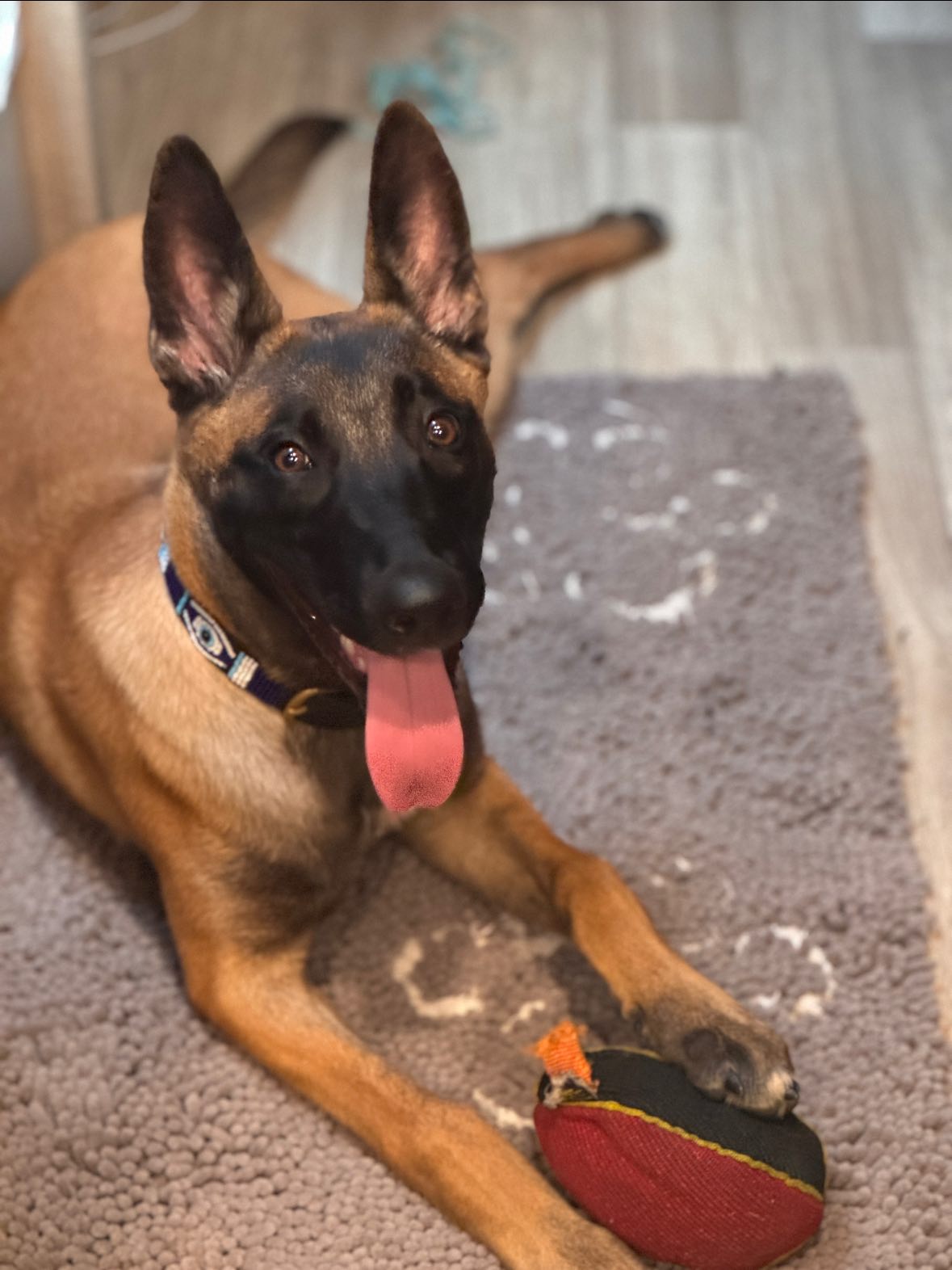
Sleep & Recovery for Florida Dogs (Especially Malinois)
Aug 19, 2025When most people think “recovery” for active dogs, they picture massage, supplements, hydration, or a rest day. All of those are great, but the biggest recovery booster is often the simplest: sleep.
As canine fitness expert Erica Boling, PhD points out, sleep is when the body repairs tissue, the nervous system resets, and learning consolidates. Skip sleep, and you’re leaving performance, and wellbeing, on the table (source: Northeast K9 Conditioning).
Why Sleep Is the Hidden Edge in Training Results
Recovery doesn’t end when the session is over. Overnight, dogs strengthen muscles, reinforce neural pathways from the day’s training, and support immunity, the very foundations of performance and good behavior. Chronic sleep loss has been linked to slower response times, impaired focus and learning, and more emotional reactivity.
One study even showed that fragmented sleep changes a dog’s behavior the next day: less play, reduced alertness, and more overall inactivity.
A tired brain learns and performs worse.
How Much Sleep Do Dogs Really Need?
There’s no single number. Age, breed, fitness, and environment all matter. Research suggests the average dog sleeps about 10 hours a day, but seniors may nap more in shorter bursts, and high-drive breeds like Belgian Malinois often need protected downtime to prevent them from pushing past their limits.
The key isn’t just quantity, it’s quality. Longer, uninterrupted stretches of sleep are especially important for true recovery.
Florida Factors That Disrupt Canine Sleep
Living in Florida adds some unique sleep challenges:
- Heat & humidity: Dogs may struggle to cool down in the evenings, delaying restful sleep.
- Thunderstorms & fireworks: Common from spring through fall, these noises spike stress hormones and interrupt sleep cycles.
- Travel/boarding transitions: Seasonal routines (like snowbirds moving back and forth) can disrupt your dog’s sleep patterns.
- Busy households & late sunsets: Extra activity in the evenings can keep dogs in “go mode” long past when they should be winding down.
Even small, repeated sleep losses can build up and start showing as “training issues” or behavior setbacks.

Special Note for High-Drive Dogs (Like Malinois)
Belgian Malinois and other working breeds are famous for their stamina and drive. But that “always ready” attitude can be misleading. Inside, their nervous systems still need decompression and sleep to recover fully.
Look for subtle signs of sleep debt: slower responses on known skills, edgier reactions to noise or handling, clinginess after a busy day, or a “flat” session following a heavy workload. These aren’t training problems—they’re recovery problems.
DogSports4U’s Sleep Tips for Florida Dogs
Here’s how we help dogs, especially high-drive working breeds, get the rest they need:
- Set a consistent sleep routine. Predictable lights-down, wake-up, and even a mid-day quiet period make a big difference.
- Create a cool, dark den. AC, fans, cooling mats, and a crate or cot in a calm space support deeper sleep.
- Evening de-arousal. After 6 p.m., swap tug and fetch for sniff walks, lick mats, or place work so your dog’s body and brain can shift into rest mode.
- Storm plan. White noise, consistent bedtime routines, and—if needed—vet-approved aids help protect sleep during noisy weather.
- Plan recovery after big days. Following a heavy training day or event, reduce activity and allow 24–48 hours of deeper rest. That’s when the real gains happen.
Quick Reminder Checklist
- Uninterrupted overnight sleep most nights
- Daily quiet block (free from household chaos)
- Calmer evenings, not rev-up time
- Storm/firework plan in place
- Reduced activity after strenuous training
Sleep isn’t a luxury, it’s a performance tool. If your dog struggles to recover, loses focus, or seems crankier than usual, don’t just “train harder.” Look at their sleep quality and routine.
At DogSports4U, we teach Florida dogs (especially Malinois and all other high-drive active breeds) how to balance work, decompression, and rest—because great training results don’t just happen in the field; they’re built in the quiet hours, too.
Credit: Inspired by Erica Boling, PhD’s article on canine sleep and recovery and current research on how fragmented sleep affects behavior.
Don't miss a beat!
New tips, motivation, and classes delivered to your inbox.
We hate SPAM. We will never sell your information, for any reason.

